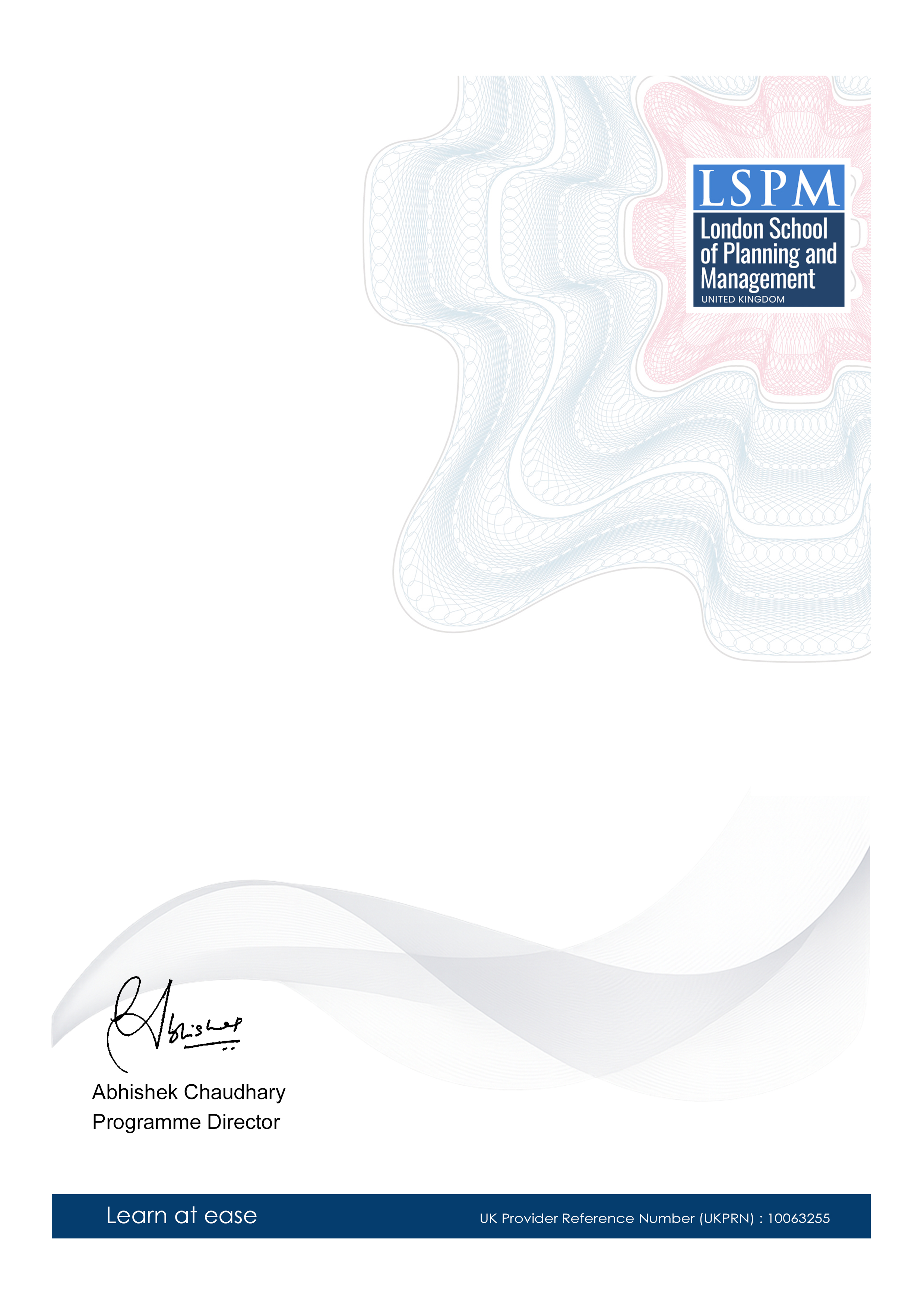Postgraduate Certificate in Robotics for Humanitarian Crisis Management
-- viewing nowThe Postgraduate Certificate in Robotics for Humanitarian Crisis Management is designed for professionals seeking to leverage robotics technology in emergency response situations. The program provides a comprehensive understanding of robotics principles, their applications in humanitarian crises, and the ethical considerations surrounding their use.
7,522+
Students enrolled
GBP £ 149
GBP £ 215
Save 44% with our special offer
About this course
100% online
Learn from anywhere
Shareable certificate
Add to your LinkedIn profile
2 months to complete
at 2-3 hours a week
Start anytime
No waiting period
Course details
Career path
Postgraduate Certificate in Robotics for Humanitarian Crisis Management
This program provides students with the necessary skills to design, develop, and deploy robotic solutions for humanitarian crisis management. The curriculum covers topics such as robotic systems design, artificial intelligence, machine learning, and autonomous navigation. Graduates of this program will be well-equipped to work in a variety of industries, including disaster relief, healthcare, and logistics.
Career Roles
- Robotics Engineer
- AI Researcher
- Machine Learning Specialist
- Autonomous Systems Developer
Skills Demand
The demand for skilled professionals in the field of robotics, AI, machine learning, and autonomous systems is on the rise. According to the chart above, the highest demand is for professionals with expertise in autonomous systems, followed by machine learning and AI. Robotics engineers are also in high demand but not as much as the other roles. This trend is expected to continue as more industries adopt these technologies to improve efficiency and reduce costs.
Salaries for professionals in this field vary depending on experience, location, and the specific role. However, according to data from Glassdoor, the average base salary for a robotics engineer in the UK is £40,000 per year, with the potential to earn up to £60,000 per year. Similarly, AI researchers can earn an average of £45,000 per year, with the potential to earn up to £70,000 per year. Machine learning specialists can earn an average of £50,000 per year, with the potential to earn up to £75,000 per year. Autonomous systems developers can earn an average of £55,000 per year, with the potential to earn up to £80,000 per year.
Overall, the Postgraduate Certificate in Robotics for Humanitarian Crisis Management provides graduates with a unique set of skills that are in high demand across various industries. The program's focus on developing robotic solutions for humanitarian crisis management makes it particularly relevant in today's world, where disaster relief and emergency response are becoming increasingly important.
Entry requirements
- Basic understanding of the subject matter
- Proficiency in English language
- Computer and internet access
- Basic computer skills
- Dedication to complete the course
No prior formal qualifications required. Course designed for accessibility.
Course status
This course provides practical knowledge and skills for professional development. It is:
- Not accredited by a recognized body
- Not regulated by an authorized institution
- Complementary to formal qualifications
You'll receive a certificate of completion upon successfully finishing the course.
Why people choose us for their career
Loading reviews...
Frequently Asked Questions
Course fee
- 3-4 hours per week
- Early certificate delivery
- Open enrollment - start anytime
- 2-3 hours per week
- Regular certificate delivery
- Open enrollment - start anytime
- Full course access
- Digital certificate
- Course materials
Get course information
Earn a career certificate

